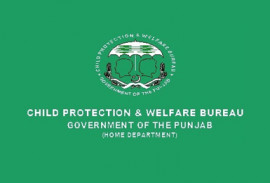
The Covid-19 pandemic has disrupted the lives of individuals and communities across the globe.
However, women are reported to have suffered more than men due to the systemic inequality and lack of access to humanitarian and health services.
Whereas women have specific humanitarian needs, they have specific roles too to make themselves resilient against all kinds of shocks.
Speakers said this while sharing their views at a webinar entitled ‘Addressing the gender dimension of Covid-19 pandemic: Data, policy and psychological determinants’ organised by the Sustainable Development Policy Institute (SDPI) here on Tuesday.
Aisha Sarwari, co-founder of Women’s Advancement Hub, opined that even before the pandemic, nine out of 10 women in Pakistan faced violence in their lives. The ideas and programmes for the protection of women seldom see the practical manifestation. The situation of women at Pakistan-Afghanistan borders demands urgent action for their protection and fulfilling their humanitarian needs.
Read More: Civil awards: Why our pandemic heroes were left out?
SDPI Director Resilient Development Programme Dr Shafqat Munir presented a detailed landscape of the devastating impacts of a pandemic on communities. He said that women have to go under a double trauma while emergencies, disasters and pandemics hit their communities as they have to take care of their loved ones impacted from crises and they have to bear the brunt of such shocks.
“We have seen women-led households left behind in accessing humanitarian assistance from philanthropists, humanitarian organisations and government entities as they were hardly counted for such an assistance,” said Dr Munir.
Published in The Express Tribune, September 1st, 2021.






1732012115-0/Untitled-design-(14)1732012115-0-270x192.webp)













COMMENTS
Comments are moderated and generally will be posted if they are on-topic and not abusive.
For more information, please see our Comments FAQ